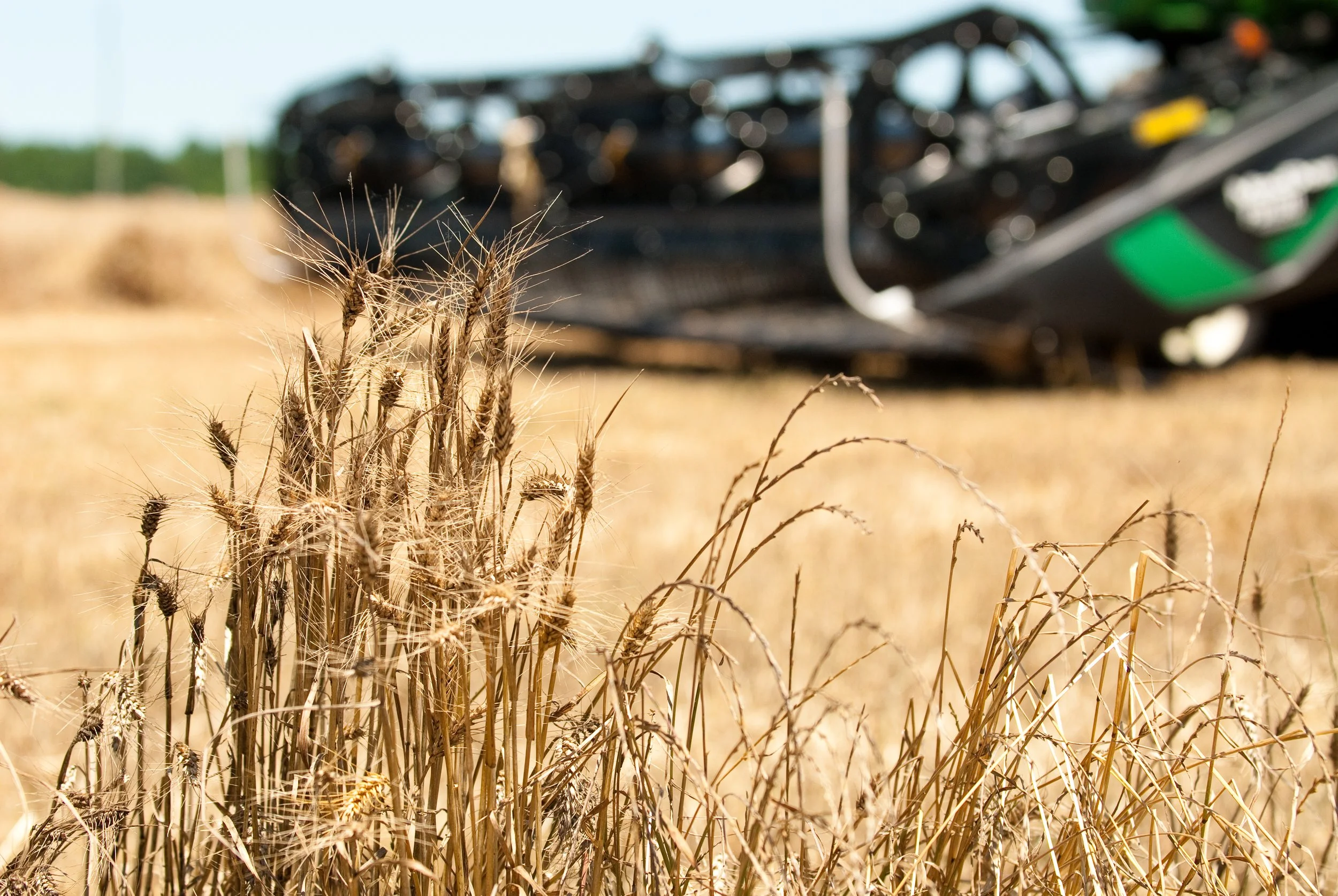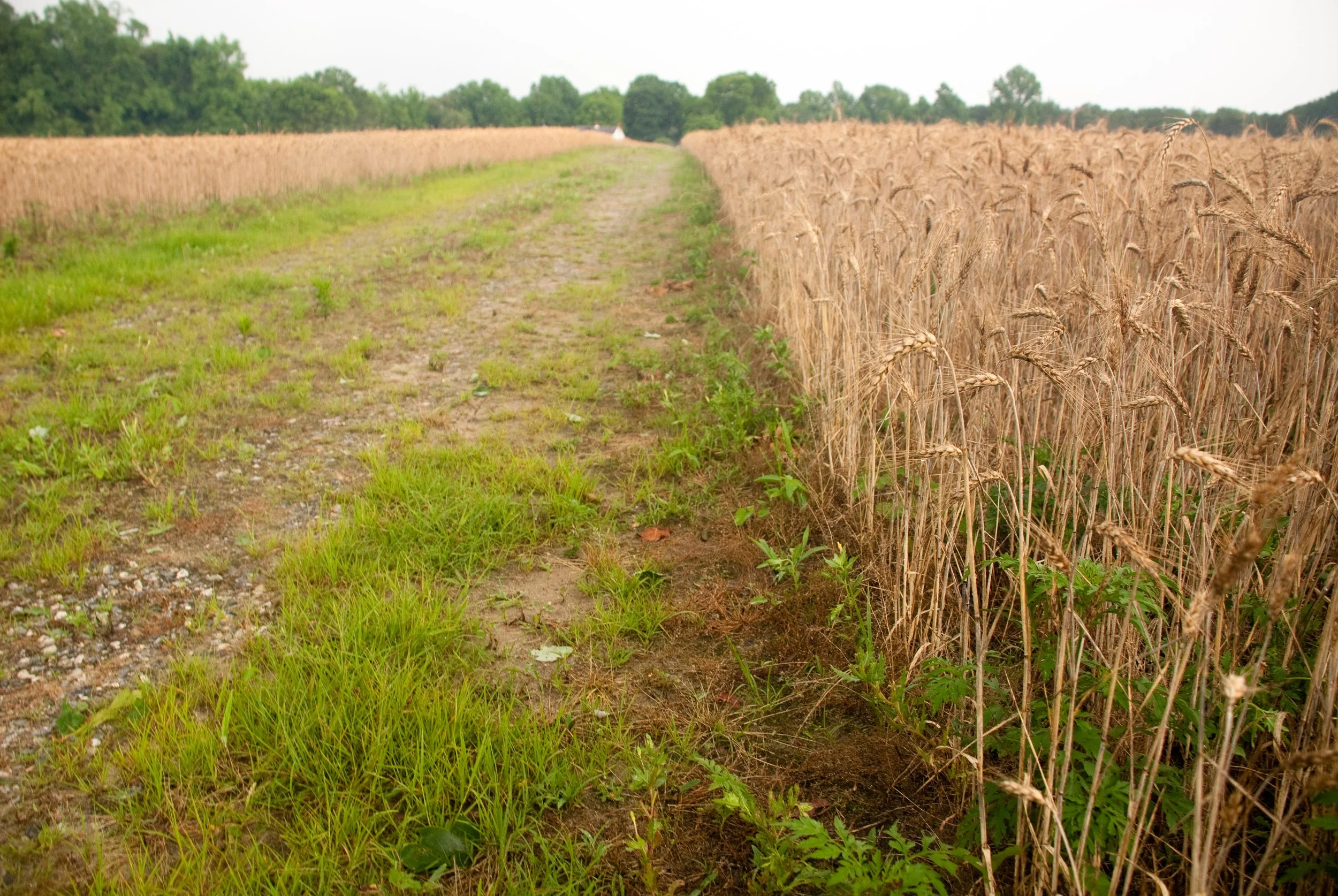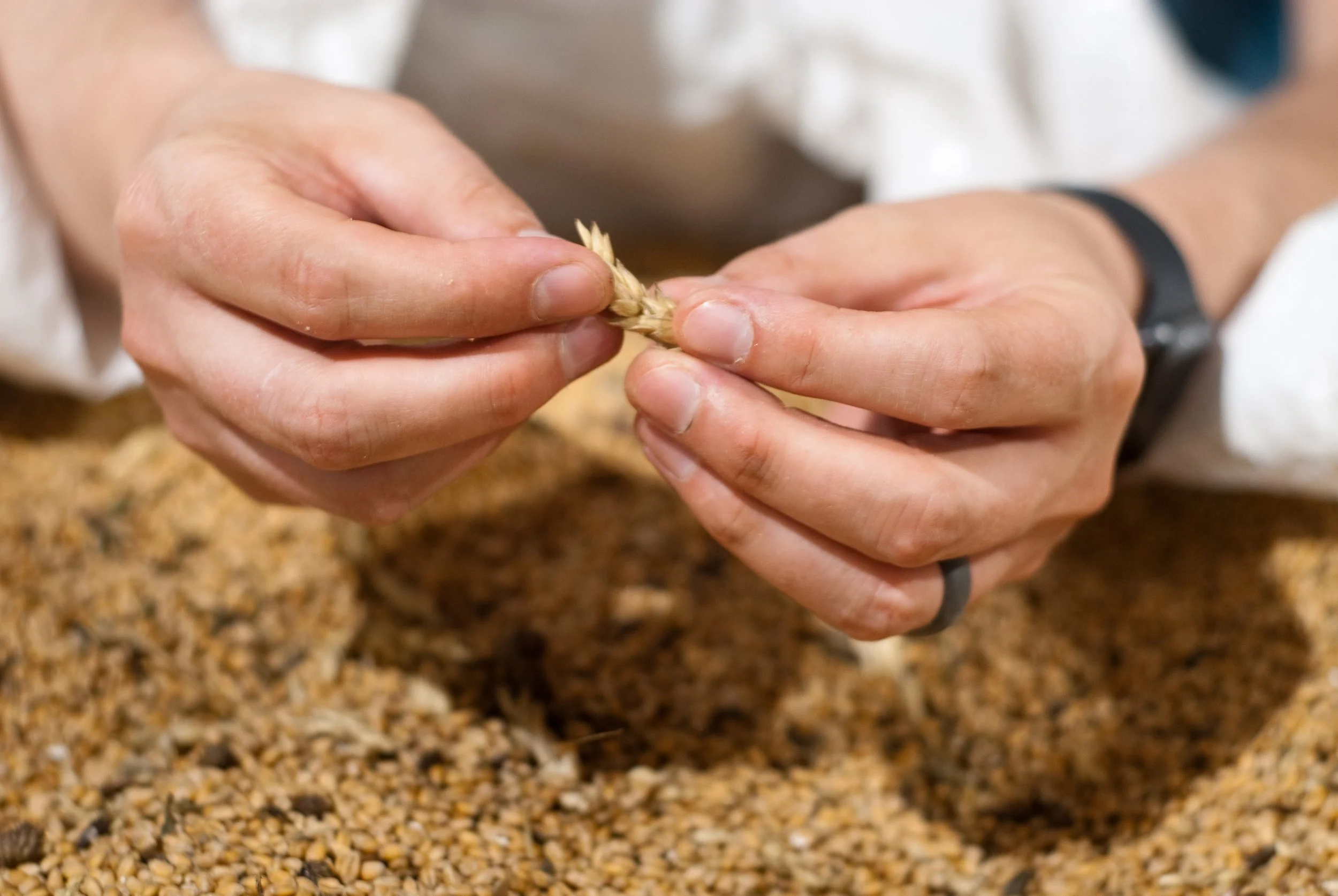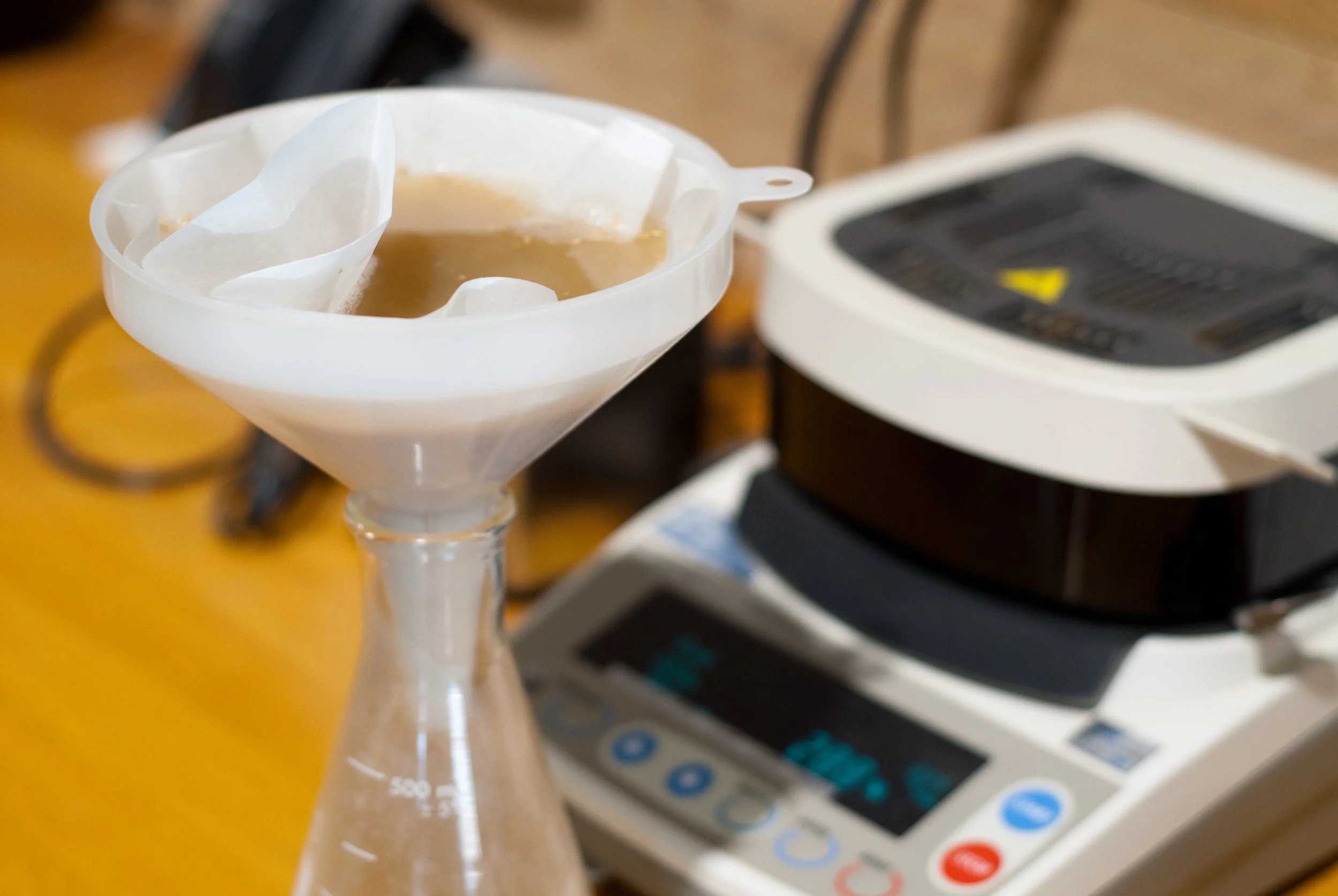Venus Rising — Murphy & Rude Malting Co in Charlottesville, Virginia
In 2012, then Governor of Virginia, Bob McDonnell, signed into Virginia law a bill with the ever-so-memorable moniker of SB604. The law was to be a watershed moment in the growth of the craft beer industry in the US state, as it brought brewery taprooms into line with wineries by giving them the freedom to sell their wares by the glass.
Photography by Mark Stewart
The ability to go to a brewery and have a pint of beer, rather than simply a flight of samples, lit the touch paper on the explosion in breweries throughout Virginia. Prior to the bill passing, there were fewer than 30 breweries in Virginia; today there are nearly 300. Many of them able to operate purely because they can sell pints directly to consumers through their taprooms.
It was the advent of SB604 that got Jeff Bloem thinking. With the inevitable growth in the industry, who would stand to benefit from the expanded supply chain requirements, in particular in terms of ingredients? And where would these new breweries get their hops, yeast, and malt?
Sitting by the open roll door of an industrial unit in the historic Woolen Mills district of Charlottesville, Jeff, owner and maltster at Murphy & Rude Malting Company tells me how he started learning about craft beer’s supply chain as a result of the new law. Jeff had assumed that in a state in which agriculture plays such a significant role in the economy there would be several malting companies already in-state ready to work with the coming tsunami of new brewers. What he discovered shocked him, there was not a single malt house in the entire state.
“There was no way this could be true,” he tells me.
Sensing an opportunity, Jeff set about learning how to make malt in the basement of this house, using equipment he built or modified himself. His handiwork included making changes to the tumble dryer vent that allowed him to use existing duct work for his malt dryer, much to his wife Kelly’s chagrin.
““So many of the characteristics of the final malt are a product of the soil.””
Unlike several other US craft maltsters—such as Colorado’s Root Shoot, or Sugar Creek in Indiana—Jeff does not own a family farm that has been passed down through generations. His is not a story of a landed establishment taking advantage of what they already had on hand to profit from a boom industry. Established in 2017, and named for Jeff’s dogs, Murphy & Rude is, at present, the only dedicated commercial malt house in Virginia. On Jeff’s shoulders rests not just his own business, but an entire industry in the state. It is no surprise then that Jeff jealously guards the quality of his malt, and its reputation with the nearly 100 brewers and distillers he supplies.
***
According to Craft Malting Guild’s executive director, Jesse Bussard, Jeff is emblematic of craft malting’s commitment to producing a high quality product, though in breaking from that mold Jeff focused initially on producing specialty malts. “[Jeff] stands out from the crowd by focusing on creating specialty products, and campaigns that really focus on the qualities that his malt exemplifies, such as freshness,” Jesse tells me.
A native of Michigan, Jeff wanted to use Virginia-grown grains for his malt, so that he could provide a Virginian product to these new Virginia brewers. As such, he would drive to farms in Virginia’s Northern Neck to buy a half ton of barley to malt in his basement setup. The more he learnt about malt, the more he realised that agronomics, field-crop production, and soil management are key to making a quality malted barley, wheat, or rye.
“So many of the characteristics of the final malt are a product of the soil,” Jeff says. “There are levers that the maltster can pull during the process, but ultimately it’s the agriculture that matters.”
For all the human ingenuity in creating malt, Jeff keeps his reliance on agricultural sciences in the forefront of his mind (read: breeding, research, resource management) and the wise agronomics of his growers. It is through his constant learning about agriculture that he came to understand that not all barley is even worth making into malt. He also learned of a soft white winter wheat that was cultivated in Virginia—a variety called Venus.
Venus was developed in the late 2000s at Virginia Tech—a university that has a strong agricultural program, as well as test fields all over the state—as part of their highly regarded small grains breeding program. Eventually Virginia Tech decided not to pursue commercialisation of Venus following waning demand in the flour industry, which prefers hard white wheat for its higher gluten content. In a quirky twist, in 2012 the university sold the rights to Venus to the Michigan Crop Improvement Association.
However, even in the grain basket of the United States, Venus struggled to find a market with the mills to process the grain. Hearing about the variety from the now retired small grains breeder Carl Griffey at Virginia Tech (with whom Jeff works closely in linking farming to the final product) Jeff stepped in and purchased the last available certified seed stock, and brought it home. That seed, sown in 2019, resulted in the first 5 acres of Virginia-grown Venus wheat sown at Grapewood Farm in Montross. “[MCIA] no longer cultivates Venus so it is up to Murphy & Rude to maintain seed stock if we want it,” Jeff says.
White wheat differs from red wheat, not just in the colour of the bran, but also in its flavour profile. Red wheat has a cleaner, more delicate profile when compared to white wheat’s distinctly yeast-bread character. Being a soft wheat also means that Venus has lower protein and less gluten than a hard wheat variety, which makes “the starches more accessible and improves potential extract,” according to Jeff.
Ultimately, Jeff’s aim in bringing Venus home to Virginia is to have a unique product that the state can be proud of, steeped in the terroir of the state where it was originally intended to grow. As well as being suited to Virginia’s climate, Venus also malts exceptionally well.
“[Venus produces] excellent modification in a standard 4-day germination, which delivers high extract, low beta-glucan, and a solid enzyme package,” Jeff says. “Together, we believe we have what we need to bring soft white wheat back to Virginia.”
***
A world away from the world of small grains development and dedicated test fields, Murphy & Rude also malt an heirloom corn variety called Bloody Butcher. Grown in Virginia since the 1840s, Bloody Butcher is popular among distilleries, as well as in brewing. Malting corn has a long history in Virginia, with even Thomas Jefferson overseeing experiments with it as a result of having a copy of Joseph Coppinger’s “New American Brewer and Tanner” precisely because it includes a method for “malting Indian corn.”
Brewing with this malted corn, and thus completing the circle, is Black Narrows Brewing Company, located on Chincoteague Island, on Virginia’s Eastern Shore. Sharing Jeff’s commitment to supporting local farmers, over 80% of Black Narrows’ ingredients come from the Eastern Shore and they use Bloody Butcher corn to brew a 4.2% lager called How ‘Bout It.
““We were using expensive, imported malt and I just feel that Jeff’s malt is better.””
"[Bloody Butcher] is really nutty. Not a dark roasted nut, but much more of a fresh, unroasted, cracked almond, and a bit of a sweet unroasted nut,” Josh tells me. “It's such a cool little ingredient. It can accompany things, it can take centre stage, but never is it overwhelming. The feedback in the tasting room is that it has a really soft, pear-like character."
Brewed in tandem with Jeff’s Virginia Pils malt, How ‘Bout It is a beer steeped in the terroir of Virginia. Black Narrows uses only Murphy & Rude malt, and Josh compares it favourably to malt he used when working for previous breweries, including Bluejacket in Washington DC.
“We were using expensive, imported malt and I just feel that Jeff's malt is better,” Josh says. “I feel like my beers have benefited because of his malt. When you close the distance between supplier and producer, things can only get better.” He also notes that one of the reasons he loves working with Jeff is because he “genuinely cares, almost to a fault.”
“[Jeff] is a true believer, and that’s pretty rare. He’s one of my favourite people,” Josh adds.
The pride that Jeff takes in the quality of his product shines throughout our conversation, and it is a pride that is well founded. In my own homebrewing I have used his malts several times and they are consistently excellent. Using fresh malt adds a depth to the beer that stale grains simply lack. I have also found his commitment to being truly local infectious, which inspired me to design recipes using only Virginia grown ingredients, including malted corn.
In a marketplace dominated by a handful of multinational corporations, Jeff seems committed to ensuring his relationship as a supplier to breweries is front of mind at all times. He is acutely aware that expecting brewers to use his products purely on the basis of being from a small, local company without the quality to back that up is a hiding to nothing. One of the challenges facing artisanal suppliers into the craft beer world is that the very reputations of the brewers themselves hinge on the quality of the ingredients they use. Brewers tend to have long memories, and there is rarely a chance to make a second impression.
Whether straddling the past in heirloom corn or the present with specifically developed wheat, Jeff Bloem of Murphy & Rude is regarded as a “leader in quality” within the craft malting industry, that still only makes up 1% of all malt produced in the United States in 2022.
While craft malt is inevitably more expensive than that which is churned out on an industrial scale, the value it brings to the brewing world is beyond a mere price. As climate change impacts the major grain producers of the world’s breadbaskets, a closing of the circle between grain and glass will hopefully see more like him rising to make craft beer an explicit expression of local.
































